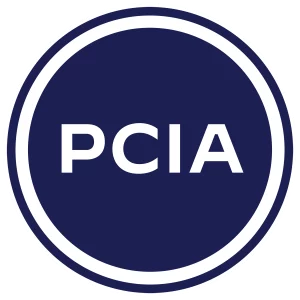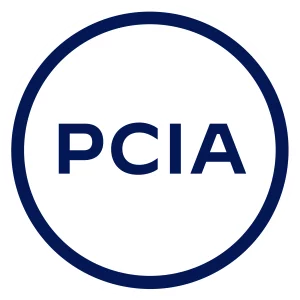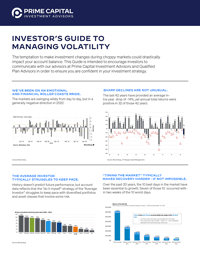While traditional options like Social Security, pensions, and investment portfolios are crucial to planning for retirement, there are innovative strategies that can provide additional benefits, tax advantages, and flexibility for some. Enter cash value life insurance. With this strategy it’s not just about protection; it’s about building a cash reserve that can be tapped into during retirement, helping to offer a tax-advantaged income stream.
Cash value life insurance, especially Indexed Universal Life (IUL) policies, are often described as a “one stone kills two birds” approach because they simultaneously address two major financial needs: providing life insurance protection and accumulating a cash value that can be used for retirement planning or other financial goals.
With cash value life insurance, premium payments are divided into two main components:
- Cost of Insurance Coverage: This portion of your premium payment covers the cost of providing the life insurance protection. It includes expenses such as the insurance company’s administrative costs, the cost of insuring your life, and any other fees associated with maintaining the policy.
- Cash Value Accumulation: The remaining portion of your premium payment is allocated towards the cash value component of the policy. This cash value can grow over time and can be accessed through policy loans or withdrawals, or used to pay premiums. NOTE: It’s important to note that interest is charged for policy loans or withdrawals based on the insurance contract’s policy terms. Your financial advisor can review this with you to help ensure that your policy stays in force.
So, when you pay your premium, part of it directly covers the risk protection (the insurance coverage), while the rest can build up as cash value within the policy. This can allow policyholders to have both insurance protection as well as the potential for policy growth. NOTE: While indexed universal life policies use market indexes as a benchmark for policy crediting, they are not actually invested in the market; therefore, you can avoid market risk. Most policies guarantee a credit based on the contract terms, and the financial strength of the issuing insurance company.
Types of Cash Value Life Insurance
1) Whole Life Insurance
This is a type of permanent life insurance that provides coverage for the insured’s entire life, as long as premiums are paid. It includes a death benefit and a savings component, known as the cash value, which grows at a guaranteed rate over time.
Key Features:
- Lifetime Coverage: Coverage lasts for the insured’s lifetime
- Fixed Premiums: Premiums remain constant over the life of the policy
- Cash Value Growth: Cash value grows at a guaranteed rate and can be borrowed against or withdrawn
- Dividends: Some whole life policies pay dividends, which can be taken as cash, used to reduce premiums, or reinvested into the policy
2)Variable Life Insurance
This type of life insurance allows policyholders to invest cash value in a range of options, with returns and risks directly tied to investment performance. It includes a death benefit and an investment component. The policyholder can allocate the cash value among various investment options, such as stocks, bonds, and mutual funds, which can impact the policy’s cash value and death benefit.
Key Features:
- Investment Options: Policyholders can invest the cash value in a variety of sub-accounts, which function similarly to mutual funds
- Market Risk: The cash value and death benefit can fluctuate based on the performance of the chosen investments; therefore, the cash value in your policy can lose money
- Potential for Higher Returns: Greater potential for growth compared to whole life insurance due to investment choices
- Policy Fees and Expenses: Typically has higher fees and expenses due to the investment component, which can also impact the actual return on investment
3)Indexed Universal Life (IUL) Insurance
This is a type of universal life insurance where the cash value growth is tied to the performance of a specified stock market index, such as the S&P 500, and unlike variable life insurance, IUL policies usually offer built-in protection against market losses. NOTE: Some IUL policies are capped in terms of growth potential. Your financial advisor can review specific contract terms with you.
Key Features:
- Flexible Premiums: Policyholders can adjust their premium payments and death benefit amounts
- Index-Linked Growth: Cash value growth is linked to a stock market index but typically has a cap on the maximum return and a floor to prevent losses
- Downside Protection: Provides a minimum guaranteed credit or interest rate of 0% or higher to protect against market downturns depending on contract terms. Guarantees are based on the financial strength of the issuing insurance company.
- Tax Advantages: Cash value growth is tax-deferred, and policy loans can be taken tax-free in most cases.
Each type of permanent, cash value life insurance offers different benefits and risks, and may or may not be indicated or recommended as part of your overall financial and retirement plan based on your individual circumstances.
Potential Benefits
Tax Treatment: One of the primary benefits of cash value life insurance is its favorable tax treatment. The cash value grows tax-deferred, and policyholders can access these funds through loans or withdrawals without immediate tax consequences.
Non-Market Correlated Asset: Cash value life insurance provides a non-market correlated asset that can offer financial flexibility, especially during market downturns. This feature can be particularly valuable for retirees seeking stability in their income streams. Policy loans can be taken as tax-advantaged income by some retirees.
Mitigation of Sequence of Returns Risk: Using cash value during market downturns can help retirees avoid selling investments at a loss, thus mitigating sequence of return risk. This strategic use of cash value can preserve the longevity of an investment portfolio.
Things to Consider
High Premiums and Complexity: Premiums are higher for permanent, cash value insurance compared to term life insurance, and the complexity of policy terms can make it challenging to understand how the cash value accumulates and impacts coverage.
Surrender Charges and Loan Interest: Early policy cancellation may incur significant surrender charges, and taking out loans against the cash value can reduce both the death benefit and accumulated cash value due to interest charged on the policy loans. It’s important that a policy remains in force.
Investment Risk: In policies with investment options, poor investment performance can lead to lower cash value growth and potentially higher premiums to maintain the policy.
The effectiveness of cash value life insurance depends on proper policy design and management. It is crucial to work with a knowledgeable financial professional to ensure the policy is structured correctly and managed effectively over time.
If you’re interested in learning more about cash value life insurance and whether or not it might benefit you, or if you’re looking for a second opinion on your current strategy, remember, we are here to help with the complexities of retirement planning while keeping your financial goals in focus. Give Jason Noble a call today at (843) 743-2926 or PCIA Wichita at (316) 669-9413 to take the first step toward designing a portfolio tailored to your retirement dreams.
This article is for general information only and should not be considered as financial, tax or legal advice. Prime Capital and its associates do not provide legal or tax advice. Individuals should consult with an attorney or professional specializing in the fields of legal, tax, or accounting regarding the applicability of this information for their situations.
Advisory products and services offered by Investment Adviser Representatives through Prime Capital Investment Advisors, LLC (“PCIA”), a federally registered investment adviser. PCIA: 6201 College Blvd., Suite#150, Overland Park, KS 66211. PCIA doing business as Prime Capital Financial | Wealth | Retirement | Wellness.
080124001 JG





